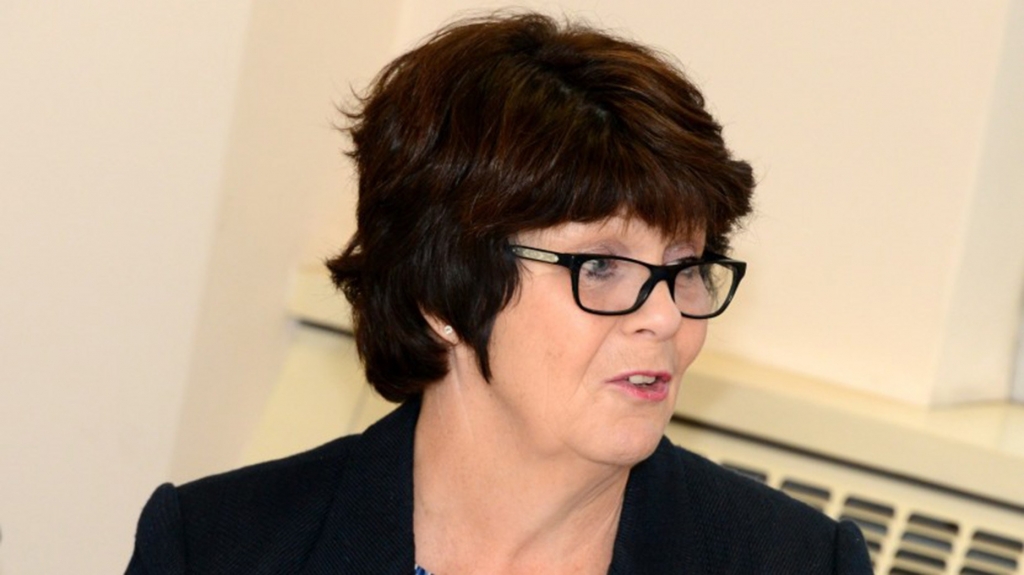-
Tips for becoming a good boxer - November 6, 2020
-
7 expert tips for making your hens night a memorable one - November 6, 2020
-
5 reasons to host your Christmas party on a cruise boat - November 6, 2020
-
What to do when you’re charged with a crime - November 6, 2020
-
Should you get one or multiple dogs? Here’s all you need to know - November 3, 2020
-
A Guide: How to Build Your Very Own Magic Mirror - February 14, 2019
-
Our Top Inspirational Baseball Stars - November 24, 2018
-
Five Tech Tools That Will Help You Turn Your Blog into a Business - November 24, 2018
-
How to Indulge on Vacation without Expanding Your Waist - November 9, 2018
-
5 Strategies for Businesses to Appeal to Today’s Increasingly Mobile-Crazed Customers - November 9, 2018
Grammar schools: Justine Greening faces grilling from MPs over controversial plans
Prime Minister Theresa May has signalled she may lift the ban on the opening of new grammar schools with education secretary Justine Greening saying the government would take a “pragmatic” look at the schools.
Advertisement
She added: “In a true meritocracy, we should not be apologetic about stretching the most academically able to the very highest standards of excellence”.
The prime minister’s move to expand grammar schools is likely to prove controversial with the Conservative modernisers she banished to the backbenches, as well as teaching unions and education campaigners.
“My only concern about our policy is to ensure that we do not create another batch of second class schools, [but] I’m sure we won’t”.
Angela Rayner, Labour’s shadow education secretary, said grammars would work for the few at the expense of the many.
Nicky Morgan – sacked as Education Secretary in July, demanded to know how new grammars would help children in areas “where expectations are still too low”. Many grammar school students continue to perform exceptionally well at GCSE, A-Level and the International Baccalaureate and, as a outcome, many transfer to top university destinations both in the United Kingdom and overseas.
“And I want Britain to be a place where advantage is based on merit not privilege; where it is your talent and hard work that matter, not where you were born, who your parents are or what your accent sounds like”.
She said new grammar schools would have to take a portion of children from lower-income households. “This is the plan to deliver them and to set Britain on the path to being the great meritocracy of the world”.
“I believe that an increase in pupil segregation on the basis of academic selection would be at best a distraction from crucial reforms to raise standards and narrow the attainment gap and at worse risk actively undermining six years of progressive education reform. That is simply unfair”, the prime minister said.
Anna Soubry MP said there was “no desire” in her constituency for selection and that she knew some comprehensives which were “more like a Borstal than a school”, while Tory MP Alec Shelbrooke told MPs he was anxious that new grammars would “create stigma” for those who do not get in.
“That is why I am announcing an ambitious package of education reforms”.
These are: taking a proportion of pupils from lower income households, or establishing a new, high quality, non-selective free school and a primary feeder school in an area with a high density of lower income households, or sponsor a now underperforming non-selective academy.
The reforms will also force universities which want to charge higher fees to either set up a new school or sponsor a poorly-performing one.
Schools Week searched the consultation document for the terms special education needs, special schools and SEND – but these terms were not included in the publication. The test is usually taken in the a year ago of primary school. The results have obviously been outstanding with a reported 100 per cent of students receiving an A or A* grade in GCSE maths.
Advertisement
Much of the debate will focus on whether grammar schools are good for social mobility, but it is also worth considering the political calculations behind a policy change that goes against the Govian thinking that has driven government education policy since 2010.





























